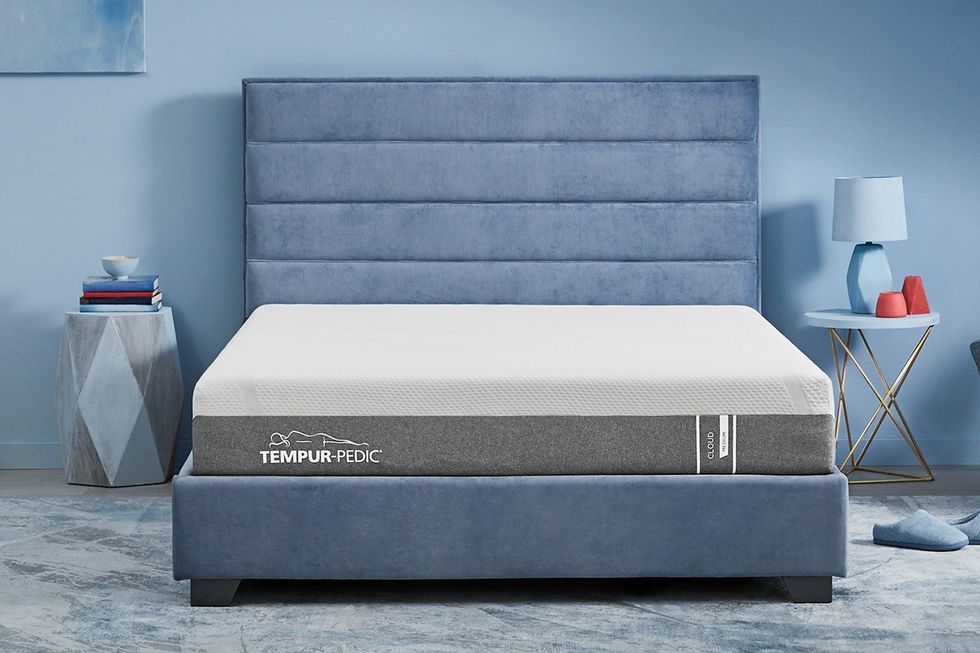The Ultimate Guide to Finding the Best Mattress for Back Pain

Introduction
Dealing with back pain can be a challenging and frustrating experience. Whether you suffer from chronic best mattress for back pain or are looking to prevent future discomfort, finding the right mattress can make a significant difference in your overall health and well-being. The mattress you sleep on plays a crucial role in supporting your spine and ensuring proper alignment while you rest.
Considering that we spend approximately one-third of our lives asleep, it’s essential to invest in a high-quality mattress that prioritizes both comfort and support. With so many options available on the market today, it can be overwhelming to know where to begin your search. That’s why we’ve created this ultimate guide to help you navigate the process of finding the best mattress for back pain.
In this guide, we’ll delve into the key factors to consider when shopping for a mattress, including firmness, support, and material composition. We’ll also explore how different sleeping positions can impact your back health and how choosing the right mattress can alleviate pain and promote better sleep. Additionally, we’ll provide tips on testing out mattresses in-store and offer suggestions for online mattress shopping.
It’s important to remember that there is no one-size-fits-all solution when it comes to mattress shopping. What works for one person may not necessarily work for another, as each individual has unique preferences and needs. That being said, understanding the basics of mattress construction and how it relates to back pain can help guide you in making an informed decision.
Whether you prefer a traditional innerspring mattress or are interested in the latest memory foam technology, there are options available to suit every budget and sleeping style. By taking the time to research and test out different mattresses, you can find the perfect balance of comfort and support that will provide relief for your back pain and improve the quality of your sleep.
In the following sections of this guide, we’ll explore the benefits of various mattress types, such as memory foam, latex, and hybrid mattresses, and discuss how each can help alleviate back pain. We’ll also highlight the importance of considering your body weight and sleeping position when selecting a mattress, as these factors can impact how effectively the mattress supports your spine.
Common causes of back pain
Back pain is a common issue that affects millions of people around the world. It can be caused by a variety of factors, ranging from poor posture to more serious medical conditions. Understanding the common causes of back pain can help you identify the root of your discomfort and take steps to alleviate it.
One common cause of back pain is poor posture. Slouching or hunching over can put a strain on the muscles and ligaments in your back, leading to discomfort and pain. Sitting for long periods without proper back support can also contribute to back pain. By being mindful of your posture and making an effort to sit and stand up straight, you can reduce your risk of experiencing back pain.
Another common cause of back pain is muscle strain. This can occur due to overexertion, lifting heavy objects incorrectly, or engaging in physical activities that your body is not used to. Muscle strain can lead to stiffness, soreness, and pain in the back. It is important to listen to your body and avoid pushing yourself beyond your limits to prevent muscle strain.
Sciatica is another common cause of back pain. This condition occurs when the sciatic nerve, which runs from the lower back down the legs, becomes irritated or compressed. The pain associated with sciatica can range from a mild ache to a sharp, shooting sensation. Sciatica can be caused by a herniated disc, spinal stenosis, or other underlying conditions. If you suspect you may have sciatica, it is important to seek medical attention to determine the best course of treatment.
Arthritis is a common cause of back pain, particularly among older adults. This condition occurs when the joints in the spine become inflamed, leading to pain, stiffness, and decreased mobility. Arthritis can worsen over time if not properly managed, so it is important to work with a healthcare provider to develop a treatment plan that addresses your specific needs.
Factors to consider when choosing a mattress for back pain
When it comes to choosing the best mattress for back pain, there are several important factors to consider to ensure that you are getting the right level of support and comfort for your specific needs.
First and foremost, it is crucial to consider your sleeping position. Different sleeping positions can put varying amounts of stress on your back, so it’s important to choose a mattress that will properly support your spine and help alleviate any discomfort. For example, if you tend to sleep on your back, a medium-firm mattress is typically recommended to provide the right balance of support and cushioning. On the other hand, side sleepers may benefit from a slightly softer mattress to help relieve pressure points on the hips and shoulders.
Another key factor to consider is the level of firmness of the mattress. While a firm mattress used to be considered the best choice for back pain sufferers, recent research suggests that a medium-firm mattress may be more beneficial for promoting proper spinal alignment and reducing pain. It’s important to find a mattress that is firm enough to provide adequate support but also has enough cushioning to contour your body and relieve pressure points.
In addition to firmness, you should also consider the type of mattress material. Memory foam mattresses are often recommended for back pain sufferers, as they can conform to the shape of your body and provide targeted support where you need it most. Latex and hybrid mattresses are also popular choices, as they offer a good balance of support and comfort. When choosing a mattress material, it’s important to take into account factors such as durability, breathability, and motion isolation to ensure that you are getting the best possible sleep experience.
Size is another important consideration when choosing a mattress for back pain. A mattress that is too small may not provide enough space for you to move around comfortably during the night, which can lead to stiffness and discomfort in the morning. On the other hand, a mattress that is too large may not provide adequate support or may not fit properly in your bedroom. It’s important to choose a mattress size that is appropriate for your needs and the size of your bed frame.
Lastly, it’s important to consider your budget when choosing a mattress for back pain. Mattresses can vary widely in price, so it’s important to find a mattress that fits within your budget while still meeting your needs for support and comfort. Keep in mind that investing in a high-quality mattress is a worthwhile investment in your health and well-being, as a good mattress can help alleviate back pain and improve the quality of your sleep.
By considering these factors, you can find the best mattress for back pain that will provide the right combination of support and comfort to help you wake up feeling refreshed and pain-free. Take the time to research different mattress options and try them out in person before deciding to ensure that you are getting the best possible sleep experience.
Tips for maintaining a healthy sleep posture to prevent back pain
Maintaining a healthy sleep posture is crucial for preventing back pain and ensuring a good night’s rest. Here are some tips to help you achieve optimal sleep posture and keep your back pain-free.
First and foremost, it’s important to choose the right mattress and pillow. A mattress that is too soft or too firm can cause misalignment of the spine and put unnecessary strain on your back. Look for a mattress that provides adequate support for your body and helps distribute your weight evenly. Similarly, a good pillow should support your head and neck in a neutral position to prevent neck and shoulder pain.
When you lie down to sleep, make sure to keep your spine in a neutral position. This means that your head, shoulders, and hips should be aligned in a straight line. Avoid sleeping on your stomach, as this position can put undue stress on your spine and neck. Instead, try sleeping on your back or side with a pillow between your knees to help keep your spine aligned.
It’s also important to pay attention to your sleeping environment. Make sure your bedroom is cool, quiet, and dark to create optimal sleeping conditions. A comfortable mattress and bedding, as well as a supportive pillow, can also contribute to a good night’s rest and help prevent back pain.
Additionally, it’s a good idea to practice good sleep hygiene habits. Establish a bedtime routine to help your body wind down and prepare for sleep. Avoid caffeine, alcohol, and heavy meals before bed, as these can disrupt your sleep and lead to back pain. Try to maintain a consistent sleep schedule, going to bed and waking up at the same time each day, to help regulate your body’s internal clock.
If you do experience back pain while sleeping, there are a few things you can try to alleviate discomfort. Consider using a heating pad or ice pack on the affected area to help reduce inflammation and relieve pain. Stretching before bed can also help loosen tight muscles and promote relaxation. And if your back pain persists, it may be worth speaking to a healthcare professional for further advice and treatment options.
Conclusion
Finding the best mattress for best mattress for back pain is crucial for ensuring a good night’s sleep and overall well-being. By considering factors such as firmness, support, and materials, you can select a mattress that will help alleviate your back pain and provide you with the comfort and rest you deserve.
Remember that what works for one person may not work for another, so it’s important to take the time to test out different mattresses and find the one that suits your specific needs. Don’t be afraid to invest in a quality mattress, as it can make a significant difference in your daily life and health.
Additionally, don’t forget to consider your sleeping position and any other health conditions you may have when selecting a mattress. By taking these factors into account, you can ensure that you are choosing a mattress that will support your body properly and promote optimal spinal alignment while you sleep.
Ultimately, the right mattress can make a world of difference in managing and alleviating back pain. So take the time to do your research, test out different options, and prioritize your comfort and health when making your decision. With the right mattress, you can look forward to waking up feeling refreshed and pain-free each morning.




